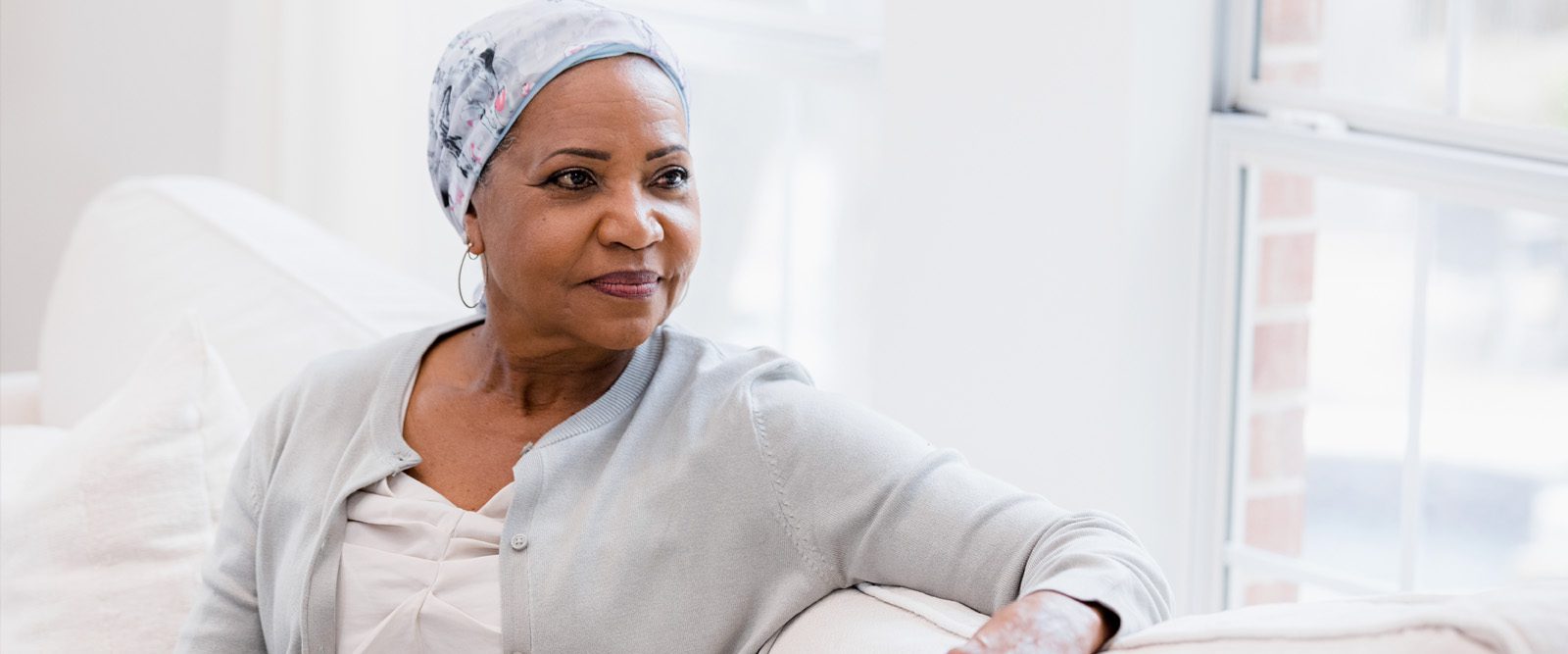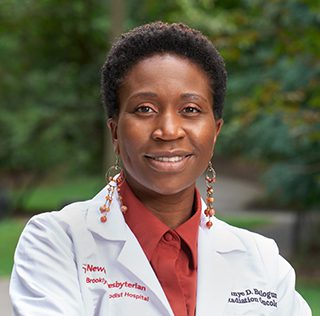Uterine Cancer and its Impact on Black Women
An expert explains how Black women are disproportionately affected and what they can do to protect their health.

Uterine cancer, also known as endometrial cancer, has been steadily rising over the past two decades, several studies show. It is now projected to replace colorectal cancer as the third most common cancer among women and the fourth-leading cause of women’s cancer deaths by 2040, according to a recent study.
A recent study in JAMA Oncology reports uterine cancer death rates are rising by almost 2% per year, with the highest spikes among people of color. Black women are not only more likely to be diagnosed with uterine cancer, they are more than twice as likely to die from it than other racial and ethnic groups, the study found.
“A white woman who is diagnosed with endometrial cancer has a five-year survival rate of 84%,” says Dr. Onyinye Balogun, radiation oncologist at New York-Presbyterian Brooklyn Methodist Hospital and an assistant professor of radiation oncology at Weill Cornell Medicine. “If you’re a Black woman, that falls to 64%. That should not be the case.”
Black women also have a greater risk of developing an aggressive, faster-growing type, called non-endometroid uterine cancer, which is rising significantly, Dr. Balogun notes. “This type of cancer is more likely to metastasize (spread),” she says.
Dr. Balogun spoke with Health Matters about the reasons behind these risk factors and what Black women can do to protect their health and improve outcomes.

Dr. Onyinye Balogun
Know the Signs
Uterine cancer, which most commonly occurs in the lining of the uterus, or endometrium, can often be cured if detected early, and its survival rate in its early stage is more than 90%, Dr. Balogun explains. But Black women tend to get diagnosed later when the cancer is more advanced and harder to treat, according to a 2022 report published in Obstetrics & Gynecology.
With no screening test for uterine cancer, like the Pap test for cervical cancer or mammograms for breast cancer, women need to be especially aware of their body and see a doctor as soon as they experience signs, Dr. Balogun says.
The most common symptom is postmenopausal bleeding, which is present in 90% of patients. “Any kind of bleeding after menopause is not OK to leave unchecked,” says Dr. Balogun. “That’s a trigger to go immediately and get it ruled it out.” Pre-menopausal women should tell their doctor about changes in their bleeding, such as heavier periods than usual or intermittent spotting.
Abnormal discharge also warrants a call to the doctor. “If you notice that you’re having a lot of mucus discharge that is unusual for you, that could be another sign,” says Dr. Balogun.
When the disease is more advanced, women may have pelvic pain, pain with intercourse, blood in their urine or stools, or unintentional weight loss.
“Pay attention to your body. If you notice something is off, go in for a visit. Don’t put it off — you are a priority,” Dr. Balogun says.
Advocate for Yourself
All women should also have a gynecological checkup every year. “An annual exam is important even if you are not sexually active,” she says.
If you feel you are not being listened to or that your concerns aren’t being taken seriously, don’t give up, Dr. Balogun advises.
“Do not be afraid to advocate for yourself,” Dr. Balogun says. “If your doctor is not listening to you, a second opinion is never a bad thing.”
Be Mindful of Your Lifestyle
Certain risk factors for uterine cancer, like obesity and diabetes, are disproportionately present in the Black community, says Dr. Balogun. “These conditions tend to worsen outcomes for Black women,” she adds.
Eating nutritiously, exercising regularly, maintaining a healthy weight, and controlling high blood pressure are key to staying healthy overall and to having better outcomes if you do get uterine cancer. “I recommend to my patients to control what you can,” Dr. Balogun urges.
You can also talk to your doctor about whether you should take birth control pills, which can offer some protection against endometrial cancer. Also check with your doctor before starting hormone replacement therapy for menopause symptoms to get the right type for you, as estrogen-only therapy may increase the risk.
Understand Your Family History — and Share Your Story
Certain inherited traits, such as Lynch syndrome, put people at a higher risk for uterine cancer and several other cancers. Dr. Balogun says it’s important to share family history so relatives can tell their doctor, who may discuss undergoing tests for uterine cancer and genetic testing.
“There can be a stigma and secrecy when it comes to cancer,” says Dr. Balogun. “Sometimes there’s an underappreciation for the fact that what’s ailing you might also affect somebody in the family. I tell women, ‘Stop the secrecy. Talking can save a life.’”
Women can also help one another by talking about their diagnoses. “Sharing, ‘This is what happened with me,’ even if it doesn’t mean that there’s a genetic predisposition in your family, may make it easier for the next person,” says Dr. Balogun. “You may have some wisdom to share or a way to help them navigate their emotions or to navigate the medical system.”
Working to Bridge the Gap
Dr. Balogun is actively working to help address health disparities in uterine cancer. From access to health care to providers dismissing their symptoms, Black women face many systemic barriers.
Black women are also less likely to get care that aligns with practice guidelines for uterine cancer and to receive certain treatments, including a hysterectomy and subsequent chemotherapy, research shows. “Those are some of the things that get in the way of having equitable outcomes,” says Dr. Balogun.
To help combat these disparities, Dr. Balogun frequently works directly with the community to educate and empower women, speaking on the topic at local events.
She also actively conducts research into the disease’s causes, exploring how ancestry affects a person’s predisposition to uterine cancer and the role that genetics play.
Dr. Balogun’s research at New York-Presbyterian Brooklyn Methodist Hospital and the New York Genome Center studies Black women who have had more aggressive types of uterine cancer. The goal is to identify genetic mutations that are prevalent in women of African ancestry to see if these mutations predispose Black women to more frequently develop aggressive uterine cancer compared to other ancestries.
“Most participants of genomic studies are of European ancestry,” says Dr. Balogun. “For us to have a comprehensive understanding of how ancestry affects your predisposition to cancer and outcomes from cancer, we need to cast a wider net.”
Additional Resources
Learn about NewYork-Presbyterian’s gynecologic cancer care.
Learn more about NewYork-Presbyterian’s comprehensive women’s health services.
Onyinye D. Balogun, M.D., is a radiation oncologist at New York-Presbyterian Brooklyn Methodist Hospital and an assistant professor of radiation oncology at Weill Cornell Medicine, specializing in the treatment of breast and gynecologic malignancies. Her research focuses on local and global disparities in cancer care and outcomes, particularly the delivery of radiation therapy in low- and middle-income countries.
